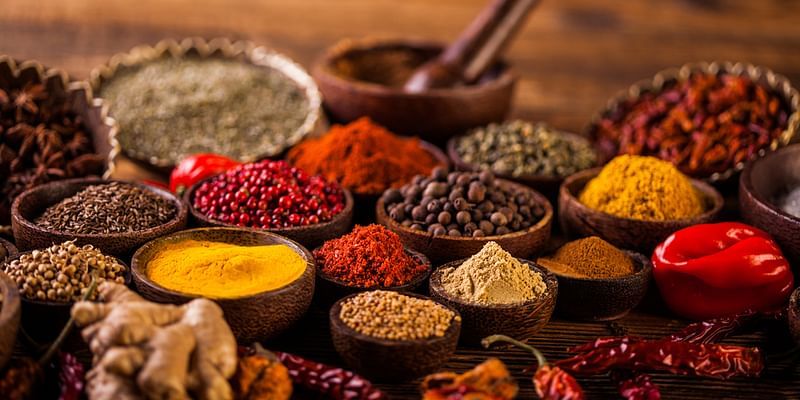5 spices to stay warm and healthy this winter season
Do you know spices can do much more than just adding flavours to your food? Check out these five spicices that can help you stay warm and healthy in the winter season.
Do you know spices can do much more than just add flavours to your food? Yes, you have heard it right, incorporating the right spices into your diet can not only provide warmth but numerous other health benefits as well.
While cosy blankets and hot beverages play their part, no one likes the feeling of constant struggle to stay warm and fight the urge to get back to bed. Hence, it’s extremely crucial to not rely completely on external sources, and keep ourselves warm inside out. In today’s article, we'll explore five spices that not only add flavour to your winter meals but also contribute to your overall well-being.
Pepper
Both white and black pepper have wonderfully warming properties. This effect can be attributed to its active compound, piperine. It increases your body temperature by promoting thermogenesis (a process by which the body produces heat), creating a sense of warmth.
Piperine has also been shown to have vasodilatory effects, which means it can widen blood vessels. This may lead to improved blood circulation, allowing warmth to reach different parts of the body more effectively.
Additionally, it is known for stimulating the production of digestive enzymes which improves digestion, leading to increased metabolic rate and the generation of internal heat.
Cinnamon
Cinnamon is known for its sweet and warm flavour. As it contains compounds like cinnamaldehyde. When consumed, these compounds can create a warming sensation in the mouth and throat, contributing to a feeling of warmth. It also has anti-inflammatory and antioxidant properties, which can help boost your immune system.
Moreover, it has been studied for its potential role in regulating blood sugar levels. This contributes to overall metabolic function and energy balance, in turn influencing the body's ability to maintain warmth. It also promotes the creation of collagen, lessening the effects of ageing.
Ginger
Ginger, the most versatile spice with a long history of traditional use in various cultures. It is often associated with providing a warming effect, especially during winter. It contains bioactive compounds like gingerol, which increases metabolic rate, leading to the production of internal heat and a warming sensation.
Ginger is also known for its digestive properties and anti-inflammatory effects. Moreover, it improves blood circulation, calms the respiratory tract as well as boosts immunity naturally.
Turmeric
We all are somewhat aware of the wealth of health benefits turmeric brings. It not only adds colour to our dishes but also has potent anti-inflammatory and antioxidant properties. These properties can contribute to immune system support. These properties make turmeric an excellent spice to be included in the winter diet.
Besides this turmeric is often used traditionally to support joint health and alleviate discomfort. While joint stiffness tends to be more noticeable during winter, adding this spice to the diet becomes a must for a comforting and warm winter.
Cloves
Cloves are a popular spice that has been used for centuries for both culinary and medicinal purposes. It has a warming and aromatic quality that can provide a comforting sensation during the colder months. Hence, adding cloves to hot beverages, such as tea or mulled cider, can be a delightful way to experience this warmth.
It contains compounds with antibacterial and antiviral properties, which support the immune system, protecting against common winter illnesses. It has also been traditionally used to address respiratory issues like coughs and colds.
It provides digestive support, has analgesic (pain-relieving) properties, and improves blood circulation due to its warm and spicy scent. All these factors make incorporating cloves into your winter routine a must.
Bottomline
Spices not only enhance the taste of your winter meals but also offer a range of health benefits that can help you stay warm and well during the colder months. You can experiment with these spices in various recipes. These flavorful dishes will not only contribute to keeping you warm from the inside but also to your overall well-being.











